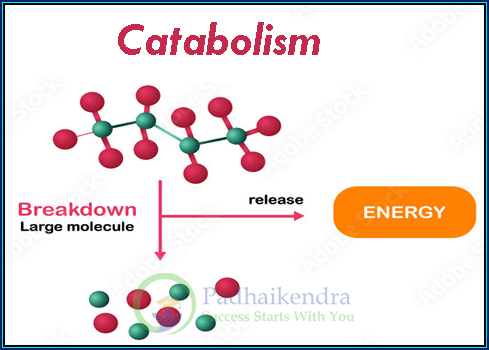Have you ever stopped to think about the amazing things our bodies do every single moment? One of these incredible behind-the-scenes performers is the human excretory system. It might not be as flashy as superheroes in capes, but its job is just as crucial – keeping our bodies balanced and healthy.
Significance of the Human Excretory System
Imagine if you never took out the trash from your home. It wouldn’t take long before things got messy and smelly, right? Well, our bodies work in a similar way. Every day, we produce waste that needs to be removed to keep things running smoothly. This is where the excretory system jumps into action.
Overview of Functions and Components of Human Excretory System
Picture this system as a team of dedicated cleaners in your body, making sure everything stays neat and tidy. It’s made up of several important parts that work together seamlessly. The main players are the kidneys, ureters, bladder, and urethra.
Kidneys: These are like superstar filters. They sift through our blood, removing waste products and extra stuff we don’t need. Think of them as nature’s recycling centers.
Ureters: These are like tiny highways that transport the filtered waste, called urine, from the kidneys to the bladder. They’re like the delivery trucks of the body.
Bladder: This is like a storage tank. It holds the urine until we’re ready to get rid of it. It’s like a temporary waste bin.
Urethra: This is the exit door. When the time is right, it lets the urine out of our bodies. It’s like a super-smart automatic door.
The human excretory system might not get the spotlight it deserves, but it’s a true hero in its own right. It keeps us healthy by making sure waste doesn’t build up inside us.
Defining the excretory system and its role
Let’s start with the basics. Imagine your body is like a bustling city. Just like any city, it produces waste – stuff that’s not needed anymore. Now, you wouldn’t want trash piling up on the streets, would you? That’s where the excretory system comes to the rescue!
The excretory system is like your body’s very own cleaning crew. It’s made up of parts that work together to make sure waste doesn’t hang around where it’s not welcome. This system’s main job is to get rid of waste and extra stuff your body doesn’t need, kind of like tidying up a messy room.
Its Role in Keeping You Healthy
Imagine if you never cleaned your room and just kept everything you didn’t need anymore. It would get messy and pretty yucky, right? Well, the same goes for your body. If waste keeps piling up, it can cause problems and make you feel unwell.
So, the excretory system steps in like a hero. It’s like the manager of waste disposal. It takes all the waste your body doesn’t need and gets rid of it in a smart and efficient way.
Parts of the Human Excretory System (Organs)
Let us discover the unsung heroes of our body – the parts that make up the excretory system. These are the real MVPs (Most Valuable Players) when it comes to keeping things clean and balanced inside us.
Think of your body as a grand puzzle, with each piece playing a vital role. The excretory system is no different. It comprises some pretty important players, each with a specific task to keep things running smoothly. Let’s know about them-
Kidneys
First, we have the kidneys – a pair of bean-shaped wonders located in the back of your abdomen. These organs are like super-efficient filters. They sift through your blood, picking out waste and extra water. Think of them as your body’s expert water-balancers.
Ureters
Meet the ureters! They’re like tiny tubes that act as messengers. They carry the waste and extra water collected by the kidneys and deliver them to the bladder. It’s almost like a secret underground passage for waste management.
Bladder
Think of the bladder as your body’s personal storage tank. It’s like a balloon that can expand and contract as it fills up with the waste sent by the ureters. When it’s full, you feel the urge to use the restroom – that’s your bladder telling you it’s time to empty out the waste.
Urethra
Lastly, we have the urethra. This is your body’s smart exit door for waste. When you’re ready to say goodbye to the waste your body doesn’t need anymore, the urethra lets it out. It’s like a gatekeeper, making sure the waste goes where it’s supposed to.
And there you have it, the cast of characters that make up the excretory system! Kidneys, ureters, bladder, and urethra – work together in harmony, ensuring your body stays clean and balanced.
Excretory System Function
Let’s go on a journey to unravel the hidden workings of a super important system in our body – the excretory system.
Understanding the Core Purpose of Waste Removal
Think of your body as a bustling factory. Just like any factory, it produces things, and some of those things are waste – stuff that’s no longer needed. Now, you wouldn’t want the waste to pile up and clutter the factory, right? That’s where the excretory system comes in, like a dedicated cleanup crew.
Waste Removal: The excretory system’s main job is to take care of the waste your body doesn’t need. It’s like the body’s janitorial service, making sure things stay tidy and functional.
Metabolic Waste: As your body goes about its activities, it produces waste products like a factory produces leftover scraps. These waste products can be harmful if they stick around, so the excretory system steps in to dispose of them.
Maintenance of Homeostasis and Bodily Balance
Just like a seesaw needs to be level to work properly, your body needs balance to function at its best. The excretory system plays a vital role in maintaining this balance, also known as homeostasis.
Fluid Balance: Our bodies are made mostly of water, and maintaining the right amount of water is crucial. The excretory system helps regulate this by adjusting how much water is kept or released.
Electrolyte Balance: Electrolytes are like tiny electrically charged particles that help keep our cells working properly. The excretory system helps make sure we have the right amount of these in our body.
Acid-Base Balance: Our body’s internal environment has a specific pH level. If it becomes too acidic or too basic, things can go wrong. The excretory system helps control the levels of acids and bases in our body.
Mechanism of Excretion in Humans
Nephrons and Their Role in Filtration- Think of nephrons as the superheroes of your kidneys – they’re like tiny, powerful filters that work hard to keep your body clean. They’re the ones responsible for sorting out the good stuff from the waste in your blood.
Filtration: Imagine your blood as a treasure chest filled with valuable coins and some dust. Nephrons act as filters, sifting through the chest and keeping the coins (the good stuff like water, and nutrients) and tossing out the dust (waste and extra stuff).
Reabsorption and Secretion Processes
Now that the nephrons have done their filtering job, it’s time for some sorting and decision-making. This is where reabsorption and secretion come into play.
Reabsorption: Imagine you’re at a buffet, and you carefully pick the delicious bits to eat. Similarly, nephrons reabsorb important things like water, salts, and nutrients, sending them back into your bloodstream. They’re like the expert buffet-goers who know exactly what’s worth keeping.
Secretion: Remember that dust we talked about earlier? Some of it still needs to go. This is where secretion comes in – nephrons decide what needs to be added to the waste pile. They’re like the cleanup crew that ensures no unwanted leftovers linger.
Formation of Urine and Waste Elimination
Now that we have all the filtered stuff, it’s time to turn it into urine and send it on its way out of your body.
Urine Formation: Think of your kidneys as skilled chefs. They take the stuff that’s been filtered and make a recipe for urine. This recipe includes waste products, excess water, and a bit of salt – all mixed together to create urine.
Waste Elimination: Once the urine is ready, it travels through tiny tubes called ureters to your bladder. The bladder stores the urine until it’s time to go. When you’re ready, the urine passes through the urethra and leaves your body.
Dialysis
The Purpose of Dialysis- Think of your kidneys as super-efficient filters, like guardians protecting your body from waste. But what happens if these guardians become a bit tired or stop working as well as they should? That’s where dialysis comes into play.
Kidney’s Job: The kidneys usually clean your blood by filtering out waste and extra water, making urine. But when they can’t do this well due to disease or damage, dialysis steps in as a backup.
Dialysis Process: Imagine dialysis as a skilled helper. It takes over some of the filtering work your kidneys can’t manage anymore. It helps keep your blood clean and balanced when your natural filters are on a break.
Medical Intervention for Impaired Kidney Function
When your kidneys need a bit of extra help, dialysis becomes a crucial medical friend. Let’s take a closer look at how this intervention works.
Hospitals and Centers: Dialysis is usually done in special places, like hospitals or dialysis centers. These are like safe havens equipped with the right tools and skilled professionals to ensure the procedure goes smoothly.
Hemodialysis: This is like the star of the dialysis show. During hemodialysis, your blood travels out of your body through a machine called a dialyzer. The machine acts as a substitute kidney, cleaning your blood and then returning it to your body.
Peritoneal Dialysis: Imagine this as a different approach. Instead of a machine, a special fluid is put into your belly through a small tube. This fluid collects waste and extra water from your blood. After a while, the fluid is drained out, taking the waste with it.
Key Points On the Human Excretory System
Imagine your body as a symphony, with each part playing a specific tune. The excretory system is like the conductor, making sure everything stays in harmony. Here’s why its functions are absolutely crucial for your overall health.
Waste Removal: Just as your home needs cleaning, your body needs waste removal. The excretory system takes charge of this, ensuring waste products don’t pile up and cause trouble.
Homeostasis Maintenance: Your body loves balance, and the excretory system is the maestro of balance. It regulates water levels, electrolytes, and pH to keep your body’s internal environment stable.
Blood Pressure Control: Believe it or not, the excretory system is like a quiet superhero for your blood pressure. It plays a role in controlling blood pressure by managing fluids and salts in your body.
Acid-Base Balance: The excretory system helps your body maintain the right level of acidity or alkalinity. It’s like a skilled chemist making sure the body’s pH doesn’t go off-kilter.
Overall Health Connection: When the excretory system is on point, your body is like a well-tuned machine. But if it falters, waste can accumulate, causing health issues and disrupting the delicate balance your body loves.





